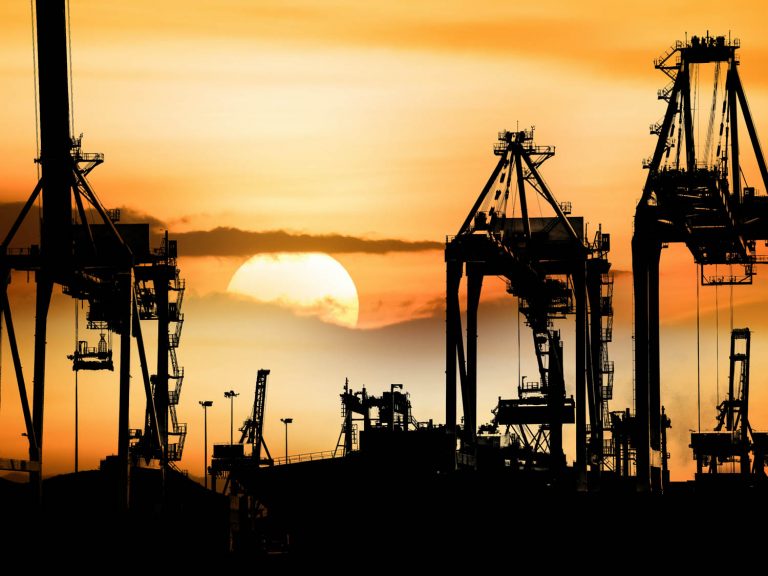
Date:
Looking ahead to the 1st quarter
The COVID pandemic has simultaneously battered supply-chains and emphasised their importance, making many companies reconsider their approach to a critical business area, that is going to be under immense pressure as we move into 2021.
2020 highlighted, in a very big way, the need for the supply chain to be flexible enough to absorb shocks like the global disruption and unpredictable demand created in the wake of the pandemic.
Using AI and machine learning, our tech teams are investigating models that can predict future events and be prepared for it.
For the first quarter of 2021 we don’t need advanced modelling tools to predict the supply chain challenges we face, as we have been highlighting them for some time.
Chinese New Year 2021
In a typical year the air freight peak season would be coming to an end, while the sea freight peak season, particularly from Asia, would have finished and the shipping lines would be cancelling sailings in anticipation of the Chinese New Year lull.
This year the peak season carries on, probably up to Chinese New Year in February and instead of cancelling sailings, the shipping lines have stopped taking bookings and are scrambling to find more ships to meet continuing demand.
The Lunar New Year is the biggest holiday in the Chinese calendar and runs from the 11th to 17th February in 2021, though manufacturers are hinting that they could lengthen the holiday up to two to four weeks.
The closures will reduce cargo volumes, relieving some of the pressure on carriers, some of whom introduced a temporary ban on new cargo bookings. But longer factory closures could make the post-holiday period even busier, as we expect elevated Asia exports to last through February.
Consumer demand
Unprecedented and unexpected consumer demand has, at least for a little while, broken global supply chains and, as stated earlier, forced carriers to stop accepting bookings.
Consumer demand that started off with panic-buying of essentials, morphed into eCommerce demand, that has seen the move from the high street to online channels accelerate by five years, with many retailers doubling their online volumes in weeks during the lockdown.
Despite consumer demand remaining strong during COVID and the outlook promising for 2021, some container shipping lines and alliances are maybe considering changes to the way they serve the UK, and look at ways to avoid delays and costs at UK ports.
UK destined cargo could be discharged at other European ports and feedered back to UK ports less congested than Felixstowe. Although the lack of available feeder tonnage may yet delay any plans.
If this does happen the big challenge for UK importers and exporters is that even after the current pressures ease, the UK could be relegated to the status of a feeder trade route, with significant impact on supply chain service levels and transit times.
Brexit
The UK government has published a 40-page multi-lingual handbook advising commercial drivers of the measures they need to take to enter the UK. But with more than 90% of trucking companies having fewer than 10 lorries, there is a strong likelihood that smaller firms will arrive at the border with incomplete paperwork, leading to lengthy delays.
With the UK government’s worst-case scenario, suggesting as many as 7,000 trucks could be backed up after the transition period ends, there are fears that long queues in January could persuade EU hauliers – which currently perform most UK-EU haulage transport – to avoid UK work for three to six months.
Vaccine global roll-out
The US plans to distribute 2.9 million doses of the Pfizer Inc. and BioNTech vaccine, that has also been approved in the U.K. and Canada, and a separate shot from Moderna is likely to follow. By the end of 2020, millions of people could be inoculated, with billions to follow.
China and Russia authorised their own vaccines in July and August, which means that a total of five vaccines are now available in limited quantities, in at least six countries.
With passenger aircraft grounded by travel restrictions introduced in late March to slow the spread of the COVID-19 pandemic, and not expected to be back at scale for some time yet, a capacity-constrained air freight market is also a consideration, in what will be one of the greatest logistical challenges ever undertaken.
Experience, communication and visibility matters at Metro. Our team has years of hands on knowledge and experience, that along with our award winning MVT digital platform, adds value, visibility and flexibility to our customers supply chains. Whatever the challenges that come our way in 2021 and beyond, Metro is ready and committed to keeping out customers supply chains moving.
